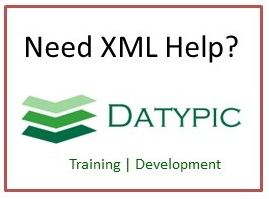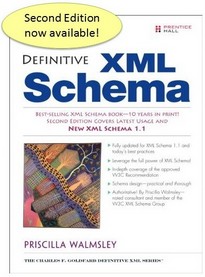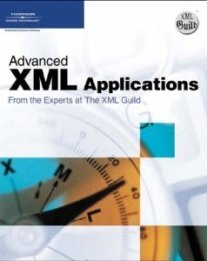sch:rule
A list of assertions tested within the context specified by the required context attribute.
Element information
Namespace: http://purl.oclc.org/dsdl/schematron
Schema document: schematron.xsd
Type: Anonymous
Properties: Global, Qualified
Content
- Choice [0..*]
- Any element Namespace: ##other, Process Contents: skip
- Any element Namespace: ##local, Process Contents: skip
- sch:include The required href attribute references an external well-formed XML document whose document element is a Schematron element of a type which is allowed by the grammar for Schematron at the current position in the schema. The external document is inserted in place of the include element.
- sch:let A declaration of a named variable.
- sch:assert An assertion made about the context nodes. The data content is a natural-language assertion.
- sch:report An assertion made about the context nodes. The data content is a natural-language assertion.
- sch:extends Abstract rules are named lists of assertions without a context expression. The current rule uses all the assertions from the abstract rule it extends.
from group sch:foreign-element
Attributes
| Name | Occ | Type | Description | Notes |
|---|---|---|---|---|
| flag | [0..1] | sch:flagValue | The name of a Boolean flag variable used to convey state or severity information to a subsequent process. | from group sch:flag |
| see | [0..1] | sch:uriValue | A name describing the function of the assertion or context node in the pattern. If the assertion has a subject attribute, then the role labels the arc between the context node and any nodes which match the path expression given by the subject attribute. | from group sch:rich |
| fpi | [0..1] | sch:fpiValue | A formal public identifier for the schema, phase or other element. | from group sch:rich |
| xml:lang | [0..1] | Anonymous | from group sch:rich | |
| xml:space | [0..1] | Anonymous | from group sch:rich | |
| role | [0..1] | sch:roleValue | A name describing the function of the assertion or context node in the pattern. If the assertion has a subject attribute, then the role labels the arc between the context node and any nodes which match the path expression given by the subject attribute. | from group sch:linkable |
| subject | [0..1] | sch:pathValue | A path allowing more precise specification of nodes. The path expression is evaluated in the context of the context node of the current rule. If no subject attribute is specified, the current subject node may be used. | from group sch:linkable |
| Any attribute | [0..*] | Namespace: ##other, Process Contents: skip | from group sch:foreign-attributes | |
| Any attribute | [0..*] | Namespace: ##local, Process Contents: skip | from group sch:foreign-attributes | |
| abstract | [0..1] | Anonymous | When the rule element has the attribute abstract with a value true, then the rule is an abstract rule. An abstract rule shall not have a context attribute. | |
| id | [0..1] | xsd:ID | ||
| context | [0..1] | sch:pathValue | The rule context expression. |
Used in
- Anonymous type of element sch:pattern
Sample instance
<sch:rule> <!--any element--> </sch:rule>



